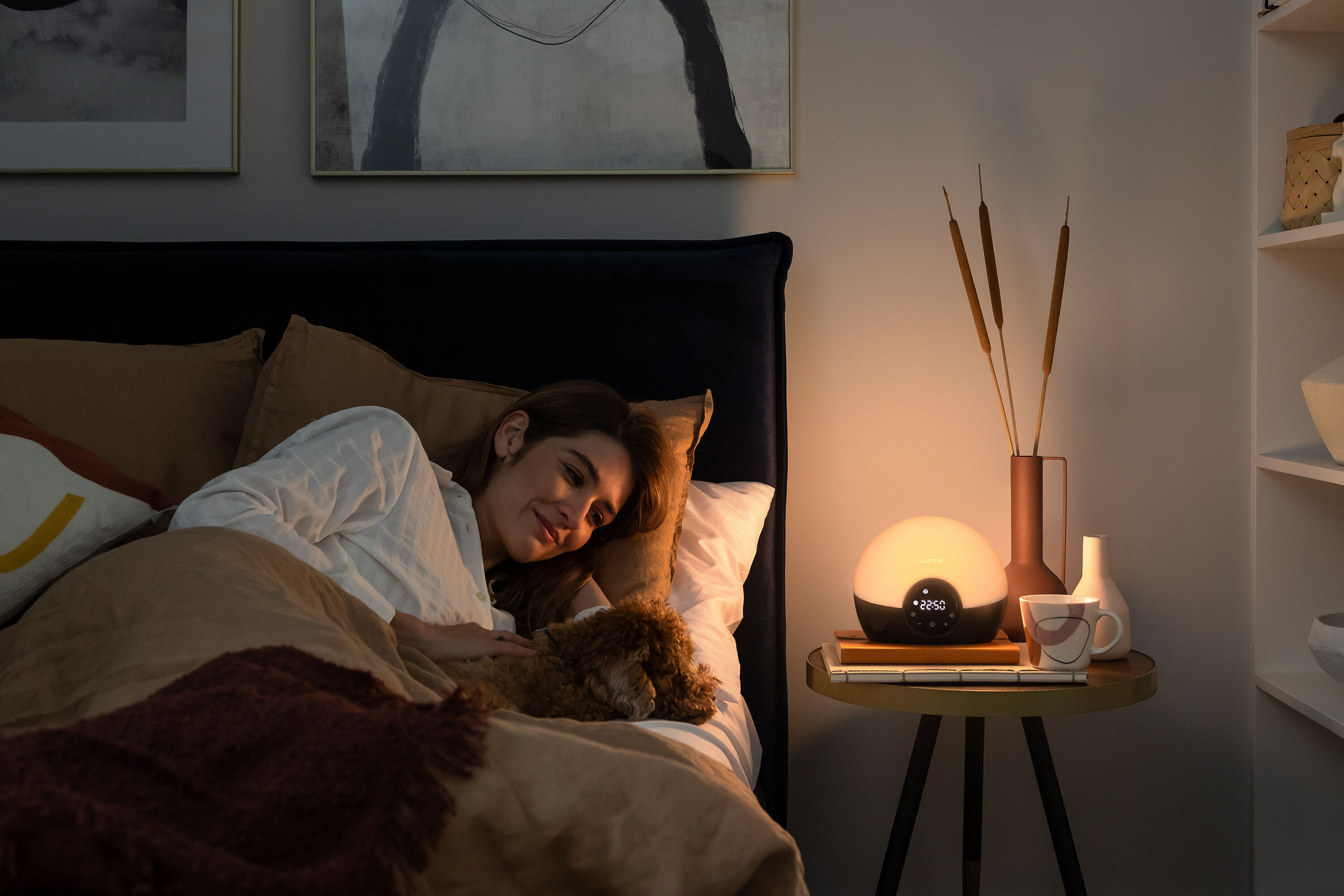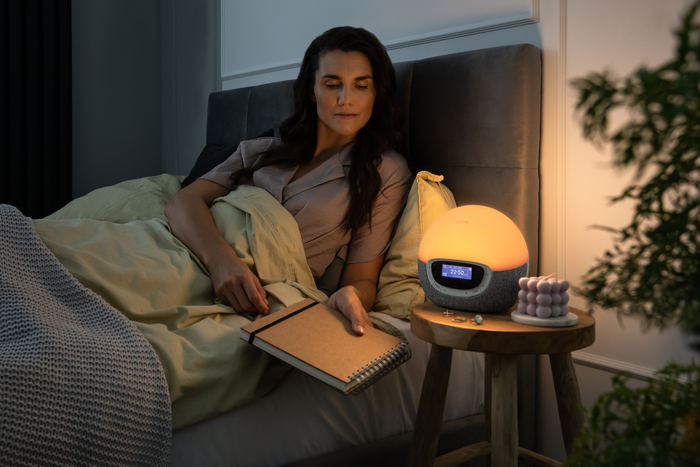What is Sleep Anxiety and How Can You Treat It? Advice from Sleep Expert Stephanie Romiszewski

Although your bedroom should be a restful place to unwind, sleep anxiety can make it a very fearful place to be. Like with all anxiety disorders, experiencing these worries elevates your heart rate, increases your temperature, and prompts the production of cortisol (your stress hormone!) which activates your body’s ‘fight or flight’ response. As well as fueling the anxiety, these physiological changes can actually perpetuate any existing sleep problems, such as insomnia.
Sleep anxiety can be such a debilitating disorder for anyone, especially if you’re already suffering from existing sleep problems. A lot of this anxiety stems from the belief that something bad is going to happen if you don’t get enough sleep. This can lead to unhealthy coping mechanisms like swapping your daytime plans for more time in bed or going to bed early even though you’re not sleepy. Although you might think these mechanisms are helping initially, they’re inevitably making the problem worse in the long run.
Struggling with anxious thoughts before bed and want to know how you can banish them? Here are Stephanie’s recommendations for reducing sleep anxiety:
There’s a huge difference between sleep-deprivation research – which can be very scaremongering - and reputable sleep resources. If you’re struggling to sleep and getting all your information from sleep-deprivation research, you’re only going to induce more anxiety and fear over your sleep. It’s so important to educate yourself using evidence-based resources. Stephanie recommends the Sleep Foundation, a resource of sleep articles written and reviewed by medical experts.
It’s important in those moments of anxiousness to identify what’s going to make you feel safe and calm. Most people suffering from sleep anxiety obsess over the need to get to sleep when they’re struggling to drift off. However, when your anxiety is that high, the goal for your body at that point isn’t to get back to sleep but to reduce the anxiety. If you don’t, you’ve got absolutely no chance of getting back to sleep! Ultimately, you’ve got to change your expectations and train your brain to believe it’s totally OK if your body doesn’t want to sleep. Instead, try practice some anxiety-reducing methods to calm your mind.
Visualising memories that spark your senses can provide a distraction from your anxiety. Imagining the smell of the ocean, the sound of birdsong, or the feeling of sand through your fingers can help you use different areas of your brain. Breathwork can also be a useful tool to regain your sense of calm and regulate your nervous system. It doesn’t matter if you don’t have the perfect technique, just following a new pattern of behaviour to challenge the anxiety will be more helpful than letting it take over. As well as these imagery and breathing techniques, the paradoxical intention technique can be helpful. This is a concept where you encourage yourself to stay awake, taking away the pressure of trying to get to sleep. Keep your eyes open and repeat a gentle mantra of “I’m going to keep my eyes open and I’m going to stay awake”.
Often the reason why we struggle to sleep at night is because our sleep drive is too low. Our sleep drive (or pressure for sleep) is something that builds steadily throughout the day and is the reason why we feel sleepier at bedtime. Waking up at the same time each day is key to building up a strong sleep drive, as well as only going to bed when you’re actually sleepy (even if that’s a little later at first). If you’re waking at the same time and not using coping mechanisms - like going to bed early, napping or lying in - your bedtime will become consistent and you’ll start to have a regular window of sleep. This is because your sleep drive thrives on a consistent schedule of falling asleep and waking at the same time each day. A dawn simulator such as Lumie Bodyclock can help you get your sleep/wake cycle back on track.
Instead of thinking about everybody else and their perfect evening routines and sleep schedules, start listening to what your body needs at that moment. Struggling to sleep probably means that your body hasn’t got a strong enough sleep drive. Leave the bedroom when you can’t sleep and only go to bed when you feel sleepy – and don’t beat yourself up if you need to stay up a little later to do that. Not everyone’s sleep looks the same.
Stephanie is the Director is Sleepyhead Clinic and you can discover their Sleepyhead Program here.





